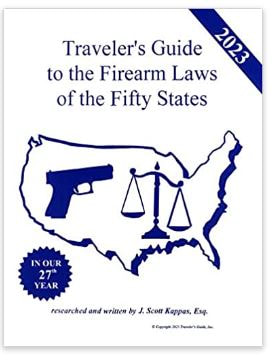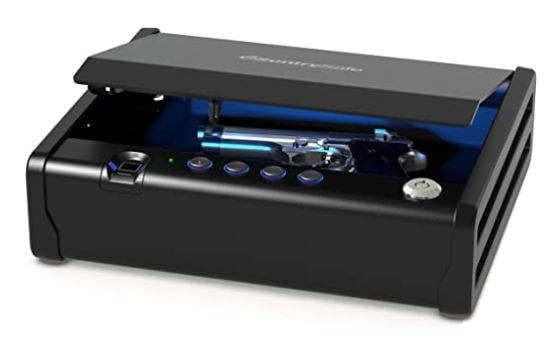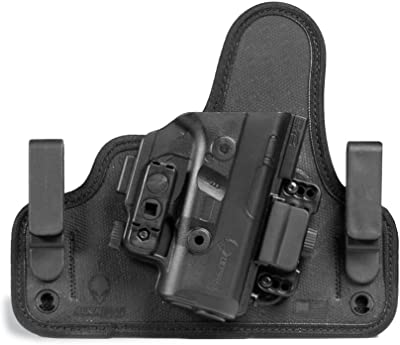Who cannot possess a firearm?

Federal Prohibited Persons
The following are federally prohibited persons:
The following are federally prohibited persons:
- Anyone under indictment or information in any court for a crime punishable by imprisonment for a term exceeding one year; (felony case is in court--you've been arrested, but not yet convicted)
- Anyone convicted of a crime punishable by imprisonment for a term exceeding one year; (a felon)
- A fugitive from justice;
- An unlawful user of or addicted to any controlled substance; (including marijuana, medicinal or not)
- Anyone adjudicated as a mental defective or has been committed to any mental institution;
- An illegal alien;
- Anyone discharged from the military under dishonorable conditions;
- Anyone who has renounced his or her United States citizenship;
- Anyone subject to a court order restraining the person from harassing, stalking, or threatening an intimate partner or child of the intimate partner;
- Anyone convicted of a misdemeanor crime of domestic violence.
State List 13-3101
Sales to minors
No person can sell or give to a minor, without written consent of the minor's parent or legal guardian a firearm, ammunition or a toy pistol. 13-3109
- Any person who has been found to constitute a danger to self or to others or to have persistent, acute, or grave disabilities whose right to possess a firearm has not been restored;
- Any person who has been convicted of a felony;
- Any person who is at the time of possession serving a term of imprisonment in any correctional or detention facility;
- Any person who is at the time of possession serving a term of probation pursuant to a conviction for a domestic violence or a felony offense, parole, community supervision, work furlough, home arrest or release on any other basis or who is serving a term of probation or parole;
- Undocumented alien or a nonimmigrant alien traveling with or without documentation in this state for business or pleasure or who is studying in this state and who maintains a foreign residence abroad, except:
- Nonimmigrant aliens who possess a valid hunting license or permit that is lawfully issued by a state in the United States;
- Nonimmigrant aliens who enter the United States to participate in a competitive target shooting event or to display firearms at a sports or hunting trade show that is sponsored by a national, state or local firearms trade organization devoted to the competitive use or other sporting use of firearms;
- Certain diplomats;
- Officials of foreign governments or distinguished foreign visitors who are designated by the United States department of state;
- Persons who have received a waiver from the United States attorney general.
- Who has been found incompetent as a result of a mental illness, defect, or disability and who subsequently has not been found competent;
- Who is found guilty except insane.
Sales to minors
No person can sell or give to a minor, without written consent of the minor's parent or legal guardian a firearm, ammunition or a toy pistol. 13-3109
Dealer Sales
Firearm purchase in other states 13-3106
A person residing in this state, or a corporation or other business entity maintaining a place of business in this state, may purchase or otherwise obtain firearms anywhere in the United States if such purchase or acquisition fully complies with the laws of this state and the state in which the purchase or acquisition is made and the purchaser and seller, prior to the sale or delivery for sale, have complied with all the requirements of the federal gun control act of 1968, Public Law 90-618, section 922, subsection (c) and the Code of Federal Regulations, volume 26, section 178.96, subsection (c).
Non-residents can purchase firearms if:
- The firearm is legal in the buyer's home state;
- The transaction must be legal in the buyer's home state;
- Immediate possession of long guns is allowed if legal in buyer's home state;
- Handguns must be shipped by the dealer to another dealer in buyer's home state.
Background checks for dealer sales are mandatory.
I got denied for a gun purchase. What do I do?
Visit the NICS Brady Check FBI appeals page. Contact an attorney. If you are currently under indictment for a crime (pre-trial) or on probation, don't even bother trying to buy a gun.
I was charged/arrested/convicted of a felony/domestic violence, etc. Can you tell me if I'm allowed to buy a gun?
No, you need to read the law yourself and consult an attorney. Frontier Carry does not provide legal advice. In most of our correspondence on this matter, important details, such as conviction and true facts are often left out, making it impossible to provide correct guidance. Please do not email us on this topic, we cannot assist.
Can I buy a handgun if I’m under 21? Can I sell a handgun to someone under 21?
As long as the sale is a private one (a dealer is not involved), anyone over the age of 18 who is legally able to possess a firearm may buy a handgun. Federal prohibits dealers from selling or transferring handguns to persons under 21, which is why most persons under 18 do not own handguns. See this ATF page.
Can I buy a firearm as a gift for someone?
Yes, as long as the receiver is not a prohibited person and the gifting is not being used to circumvent a background check or other laws. Calling a purchase intended in place of another is a straw purchase. For example: a girlfriend buying a gun for her boyfriend, because he is afraid he has a record would be an illegal straw purchase. If the girlfriend was buying her law-abiding boyfriend a gun for Christmas, that would be a legitimate gift and legal.
Do I have to register my guns?
No.
Is there a waiting period to pick-up my gun?
No, except if your background check comes back 'Delayed' and it is not cleared or denied within three days.
Can I buy more than one gun at a time?
Yes.
I got denied for a gun purchase. What do I do?
Visit the NICS Brady Check FBI appeals page. Contact an attorney. If you are currently under indictment for a crime (pre-trial) or on probation, don't even bother trying to buy a gun.
I was charged/arrested/convicted of a felony/domestic violence, etc. Can you tell me if I'm allowed to buy a gun?
No, you need to read the law yourself and consult an attorney. Frontier Carry does not provide legal advice. In most of our correspondence on this matter, important details, such as conviction and true facts are often left out, making it impossible to provide correct guidance. Please do not email us on this topic, we cannot assist.
Can I buy a handgun if I’m under 21? Can I sell a handgun to someone under 21?
As long as the sale is a private one (a dealer is not involved), anyone over the age of 18 who is legally able to possess a firearm may buy a handgun. Federal prohibits dealers from selling or transferring handguns to persons under 21, which is why most persons under 18 do not own handguns. See this ATF page.
Can I buy a firearm as a gift for someone?
Yes, as long as the receiver is not a prohibited person and the gifting is not being used to circumvent a background check or other laws. Calling a purchase intended in place of another is a straw purchase. For example: a girlfriend buying a gun for her boyfriend, because he is afraid he has a record would be an illegal straw purchase. If the girlfriend was buying her law-abiding boyfriend a gun for Christmas, that would be a legitimate gift and legal.
Do I have to register my guns?
No.
Is there a waiting period to pick-up my gun?
No, except if your background check comes back 'Delayed' and it is not cleared or denied within three days.
Can I buy more than one gun at a time?
Yes.
Private Sales
What do I need to buy a gun?
Money. Optional: Arizona ID. Some buyers want to see a concealed weapon permit for their comfort, but no identification is legally required.
What do I need to sell a gun?
A gun. A bill of sale for your records is strictly optional. It is a private record maintained to show who the firearm was sold it. It offers no legal protection and is merely documentation of the sale/transfer.
What is the procedure to buy or sell a gun privately?
Don’t most felons and domestic abusers get guns through private sales?
Actually, no. The majority of criminals who obtained guns illegally did so through straw purchases, where someone like a friend or girlfriend with a clean record, lied and bought the gun on behalf of the prohibited person (46% in one study). Corrupt dealers and illegal street gun dealers are the next most popular methods. 75% of illegally obtained guns wouldn't be stopped by the background checks.
Money. Optional: Arizona ID. Some buyers want to see a concealed weapon permit for their comfort, but no identification is legally required.
What do I need to sell a gun?
A gun. A bill of sale for your records is strictly optional. It is a private record maintained to show who the firearm was sold it. It offers no legal protection and is merely documentation of the sale/transfer.
What is the procedure to buy or sell a gun privately?
- Meet Presumably, you either know each other or this is in regards to an ad on Armslist, Facebook, etc. Arrange to meet at a safe place (like a police station or well-lit and well-traveled area).
- Buy the Gun Exchange money for the firearm. Be smart and carry a pistol if the other party is a stranger; you don’t know if it is a scam for a robbery or if someone up to no good sees money and a gun change hands.
Don’t most felons and domestic abusers get guns through private sales?
Actually, no. The majority of criminals who obtained guns illegally did so through straw purchases, where someone like a friend or girlfriend with a clean record, lied and bought the gun on behalf of the prohibited person (46% in one study). Corrupt dealers and illegal street gun dealers are the next most popular methods. 75% of illegally obtained guns wouldn't be stopped by the background checks.
State Preemption of Private Sales, Gun Taxes (HB 2224 of 2016)
44-7851 Definitions
In this chapter, unless the context otherwise requires:
44-7852 Private party firearms transfer; state or political subdivision encumbrance prohibited
This state or any political subdivision of this state may not enact or implement any additional fee, tax, assessment, lien or other encumbrance on the transfer of a firearm between two private parties who are not prohibited possessors under state or federal law.
In this chapter, unless the context otherwise requires:
- "Firearm" means any loaded or unloaded handgun, pistol, revolver, rifle, shotgun or other weapon that will expel or that is designed to or may readily be converted to expel a solid projectile by the action of expanding gases.
- "Private party" means a person who is not a prohibited possessor under state or federal law and does not include a person who possesses a federal firearms license and who primarily engages in the business of selling, trading or purchasing firearms.
- "Transfer" means when a person gives, loans, offers for sale, wills or in any manner offers another person a firearm for any lawful purpose and the person is not a prohibited possessor under state or federal law.
44-7852 Private party firearms transfer; state or political subdivision encumbrance prohibited
This state or any political subdivision of this state may not enact or implement any additional fee, tax, assessment, lien or other encumbrance on the transfer of a firearm between two private parties who are not prohibited possessors under state or federal law.
President's Executive Order on Private Gun Sales
President Obama’s recent executive order regarding private firearm sales does not apply to the majority of citizens who buy and sell firearms from each other. The executive order only seeks to reaffirm existing federal law requiring those selling firearms to make money—running a business, in other words—to be federally licensed firearms dealers. Unfortunately, some citizens take advantage of the ability to privately sell firearms to avoid having to go through the application process to become a FFL and cheat on business taxes, licensing, etc.
First, we need to understand the phrase "engaged in the business". The 1968 Gun Control Act defines: "engaged in the business" as:
First, we need to understand the phrase "engaged in the business". The 1968 Gun Control Act defines: "engaged in the business" as:
as applied to a dealer in firearms, … a person who devotes time, attention, and labor to dealing in firearms as a regular course of trade or business with the principal objective of livelihood and profit through the repetitive purchase and resale of firearms, but such term shall not include a person who makes occasional sales, exchanges, or purchases of firearms for the enhancement of a personal collection or for a hobby, or who sells all or part of his personal collection of firearms...
and “with the principal objective of livelihood and profit” as:
The term ‘with the principal objective of livelihood and profit’ means that the intent underlying the sale or disposition of firearms is predominantly one of obtaining livelihood and pecuniary gain, as opposed to other intents, such as improving or liquidating a personal firearms collection; Provided, That proof of profit shall not be required as to a person who engages in the regular and repetitive purchase and disposition of firearms for criminal purposes or terrorism...
The term ‘with the principal objective of livelihood and profit’ means that the intent underlying the sale or disposition of firearms is predominantly one of obtaining livelihood and pecuniary gain, as opposed to other intents, such as improving or liquidating a personal firearms collection; Provided, That proof of profit shall not be required as to a person who engages in the regular and repetitive purchase and disposition of firearms for criminal purposes or terrorism...
Liquidating a firearm collection (for instance, after the death of a relative), selling a large number of guns to pay for a sudden financial need, or simply selling a gun you didn’t like in order to buy another is not “engaging in the business.” Unless you are specifically buying and selling guns to make money to spend on living expenses, rather than get a job (for example), you are not conducting business. Those who should have a license probably know who they are, and the ATF does as well.
As far as the president’s executive order is concerned, it is not taking any action. President Obama is telling the ATF to keep doing its job and to concentrate more on gun show sellers who ought to have a license. Selling guns occasionally on Facebook is perfectly legal. This executive order is political theater and does not close the so-called “gun show loophole.”
Liquidating a firearm collection (for instance, after the death of a relative), selling a large number of guns to pay for a sudden financial need, or simply selling a gun you didn’t like in order to buy another is not “engaging in the business.” Unless you are specifically buying and selling guns to make money to spend on living expenses, rather than get a job (for example), you are not conducting business. Those who should have a license probably know who they are, and the ATF does as well.
As far as the president’s executive order is concerned, it is not taking any action. President Obama is telling the ATF to keep doing its job and to concentrate more on gun show sellers who ought to have a license. Selling guns occasionally on Facebook is perfectly legal. This executive order is political theater and does not close the so-called “gun show loophole.”
Can I buy a machine gun/short barreled rifle/short barreled shotgun/silencer/grenade launcher?
Yes, however the above items are regulated by the 1934 National Firearms Act and required a $200 transfer tax, plus federal registration. You will need to handle the sale through a Class 3 or NFA federally licensed dealer. The wait will be several months, will require fingerprints and notification to law enforcement, and a background check.
Can I buy an 'assault weapon' or a high-capacity magazine?
Yes, Arizona does not ban the sale of any category of firearm. Assault weapon is a misnomer for semi-automatic rifles with cosmetic features, banned in states like California. High capacity magazines, more than 10 rounds, are actually standard capacity magazines, as weapons like the AR-15 series of rifles were designed for 20 and 30 round magazines.
Yes, however the above items are regulated by the 1934 National Firearms Act and required a $200 transfer tax, plus federal registration. You will need to handle the sale through a Class 3 or NFA federally licensed dealer. The wait will be several months, will require fingerprints and notification to law enforcement, and a background check.
Can I buy an 'assault weapon' or a high-capacity magazine?
Yes, Arizona does not ban the sale of any category of firearm. Assault weapon is a misnomer for semi-automatic rifles with cosmetic features, banned in states like California. High capacity magazines, more than 10 rounds, are actually standard capacity magazines, as weapons like the AR-15 series of rifles were designed for 20 and 30 round magazines.

